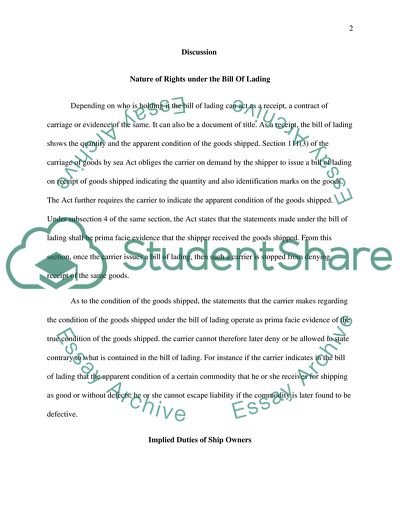Cite this document
(“Rights and Obligations of Ship Owner under the Bill Of Lading Essay”, n.d.)
Retrieved from https://studentshare.org/law/1617106-law-of-intertnational-trade-critically-assess-the-right-and-duties-of-the-shipowner-under-a-bill-of-lading
Retrieved from https://studentshare.org/law/1617106-law-of-intertnational-trade-critically-assess-the-right-and-duties-of-the-shipowner-under-a-bill-of-lading
(Rights and Obligations of Ship Owner under the Bill Of Lading Essay)
https://studentshare.org/law/1617106-law-of-intertnational-trade-critically-assess-the-right-and-duties-of-the-shipowner-under-a-bill-of-lading.
https://studentshare.org/law/1617106-law-of-intertnational-trade-critically-assess-the-right-and-duties-of-the-shipowner-under-a-bill-of-lading.
“Rights and Obligations of Ship Owner under the Bill Of Lading Essay”, n.d. https://studentshare.org/law/1617106-law-of-intertnational-trade-critically-assess-the-right-and-duties-of-the-shipowner-under-a-bill-of-lading.


